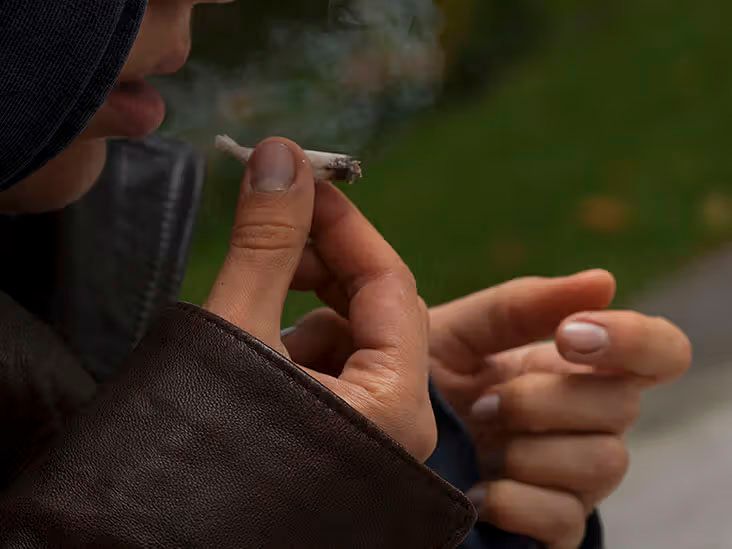Recognizing Forms of Self-Medication
Updated May 19, 2023
Content created for the Bezzy community and sponsored by our partners. Learn More

Self-medication refers to using drugs or alcohol as a way to cope with mental health conditions. While it may provide some initial relief, self-medicating can lead to negative effects and isn’t effective long-term.


Self-medication and depression
Depression is classified as a mood disorder. It’s associated with feelings of sadness, loss, and anger. When someone is depressed, these symptoms can impact their everyday life. Treating depression is important. It usually involves counseling, medication, or both.
However, not everyone seeks professional help to treat their depression. Some try coping with their symptoms on their own.
One way this happens is through self-medication. This can be dangerous and it can cause even bigger problems than simply choosing not to get treatment from trained medical professionals.
The self-medication hypothesis
The idea that substance use can be a form of self-medication is formally known as the self-medication hypothesis and was introduced in 1985.
The hypothesis claims that people use substances as a response to mental illness. It states that alcohol and drug use is often a coping mechanism for people with a variety of mental health conditions, including depression.
It also suggests that people gravitate toward the substance that alleviates their symptoms most effectively.
However, some say using substances to self-medicate can lead to symptoms of mental illness. For example, the Anxiety and Depression Association of America says that alcohol and other substances can worsen anxiety symptoms.
Self-medication can have a negative impact on mental health and does very little to treat the underlying condition. Recognizing forms of self-medication can help you understand how substance use may be related to depression and other mental health conditions.
Self-medicating with food
Risks: Decreased self-esteem, worsened depression symptoms
If you’re an emotional eater, you might self-medicate with food. “Emotional eating” is using food as a way to suppress or soothe negative emotions. This practice is also called “bingeing” or “comfort eating.”
Emotional eating may temporarily reduce stress in those who aren’t clinically depressed, according to a 2015 study. However, bingeing is not a healthy way to treat depression. It can negatively affect self-esteem and make symptoms of mental illness worse. It may also have an impact on physical health through weight gain.
Self-medicating with alcohol
Forms: Beer, wine, liquor
Risks: Addiction, legal consequences
In low doses, alcohol can temporarily relieve symptoms of depression and anxiety. It can make a person more jovial and social, give them a sense of everything being “alright,” and alleviate anxiety.
However, when used regularly, it can lead to alcoholism, which worsens depression and anxiety. Alcoholism may require a lengthy recovery process and can be extremely difficult to manage. Recovery can be a life-long process.
Post-traumatic stress disorder (PTSD) is another condition that frequently results in self-medicating with alcohol. Research shows that trauma and alcohol use are often linked.
Self-medicating with psychostimulants
Forms: Cocaine, amphetamines
Risks: Heart failure, death, legal consequences
People with mental health conditions may misuse psychostimulants such as cocaine and amphetamines. This is most likely due to the feelings of euphoria these drugs can cause. However, cocaine can be addictive and cause depression.
Cocaine has a high potential for addiction. It can be fatal when used as a recreational drug. It does major damage to the body’s cardiovascular system. Cocaine-related deaths can occur as a result of sudden heart failure.
Amphetamines speed up the function of the heart and carry the risk of a stroke.
Using these substances may distract from depression, but the “crash” feeling after the drugs have worn off doesn’t make them an effective solution for depression. In fact, cocaine users often find that it worsens their symptoms.
Self-medicating with caffeine
Forms: Coffee, tea, energy drinks
Risks: Increased feelings of depression and anxiety
Caffeine is a stimulant that’s found in many foods and in drinks such as coffee and tea. While coffee is popular for its ability to perk you up, the effects are only temporary. Once the high wears off, your insulin levels drop, causing feelings of confusion and depression.
Caffeine can also heighten feelings of anxiety. Cut down to one cup of coffee or tea per day if you’re sensitive to the effects of caffeine.
Self-medicating with cannabis
Forms: Marijuana
Risks: Worsened symptoms of depression, legal consequences
Compared to illicit substances (such as opioids, cocaine, and amphetamines), marijuana, or cannabis is, by far, the most widely used substance among those with depression.
While there are some assertions among cannabis users that cannabis treats depression, more studies are needed to determine the benefits and possible disadvantages of marijuana as a potential treatment for depression.
Studies have shown that too much marijuana can worsen symptoms of depression.
Self-medicating with opiates and opioids
Forms: Codeine, heroin, methadone
Risks: Worsened depression symptoms, death, legal consequences
Opiates, such as codeine and morphine, are drugs derived from the poppy plant. Any drug that mimics the effects of an opiate is called an opioid. Opioids include heroin, oxycodone, and methadone.
The World Drug Report estimated that in 2013, 40.9 to 58 million people worldwide used opiates and opioids.
Depression is common among users of these drugs. When depression and opiate use or misuse are combined, the results can be deadly.
Originally written May 29, 2018
Medically reviewed on May 29, 2018
18 Sources


Like the story? React, bookmark, or share below:
Have thoughts or suggestions about this article? Email us at article-feedback@bezzy.com.